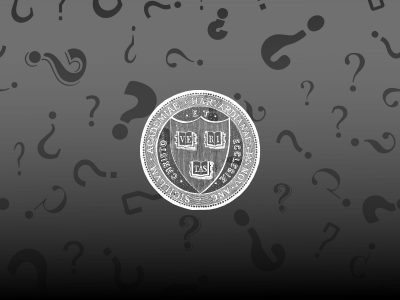Activist and esteemed philosopher Cornel West announced Thursday he was leaving his position as Victor S. Thomas Professor of the Practice of Public Philosophy at Harvard Divinity School and moving to the Union Theological Seminary.
His decision came after Harvard University denied his request for tenure, despite having previously been tenured there — as well as at Yale University, Princeton University and the Union. West previously left Harvard in 2002 before being invited back in 2016.
This instance is the most recent reflection of Harvard’s treatment of professors — especially its professors of color. The tenure process in particular is under close scrutiny after Associate Professor Lorgia García Peña — another vocal social justice advocate who dared to speak against Harvard — was denied tenure in 2019. In the same year, HDS denied tenure to Associate Professor Ahmed Ragab, yet another activist.
Harvard has displayed a repeated pattern of disrespect toward these professors, underlined by racist, microaggressive instances on campus.
The university’s justification for its adamant refusal of tenure is that it’s “too risky” for someone as “controversial” as West, he told the Boston Globe.
West has been outspoken on issues such as the Israeli-Palestinian conflict, which Harvard considers “taboo,” he said.
His case brings up an interesting debate on neutrality in higher education.
Professors being neutral makes sense within a classroom setting. If you were to constantly share your political ideologies in class — especially without hearing or respecting other perspectives — you risk harming students who have opposing beliefs and hindering their learning. All students, regardless of politics, deserve a space to feel comfortable and a professor they can trust.

However, generally speaking, professors of private institutions are more open about their political beliefs than, say, public school teachers. Subject matter may necessitate less neutrality and more transparency. As long as biases are kept out of learning material, it should be allowed.
But outside of the classroom, professors shouldn’t be silenced.
For West, his entire career has been driven by activism and philosophy. How can we expect professors to stay neutral when politics and human rights issues are so closely interwoven with their own lives, careers and studies? The whole point of academic work is to speak the truth. West has done so, and he is being punished for it.
We certainly aren’t silencing the students on campus — rather, we encourage them to form political clubs, make a difference and stand up for what they believe in.
Students need role models to look up to. And it’s necessary to have a diversity of intellectual thought on campus represented in both the student and faculty body. Without entertaining and challenging a variety of perspectives, we won’t grow. This is one of the key aspects of education a university should provide.
The problem arises if and when these institutions feel threatened by the people they employ who are willing to call out injustices. Rather than granting the freedom and position to pursue truth and justice, they may attempt to silence the “troublemakers.”
These professors and faculty are not only active and engaged with their work, but also enact change on campus to support and mentor their students, risking everything in a non-tenured position. Firing them is a loss for the entire community and leaves many students stranded.
Harvard, like Boston University and perhaps every other high-profile educational institution, cares about its public image. Harvard may care even more so because it’s not just a school at this point — its prestige has placed it in a category of its own, a tourist destination for people around the world.
By claiming West — someone who is unafraid to criticize and offend alumni, including former President Barack Obama — is too risky or controversial, Harvard makes its priorities clear.
The University appeals to multiple demographics, but mainly prospective students and alumni donors. Given that Harvard is, well, Harvard, the risk of alienating its donors and reducing its funding by allowing West to freely speak far outweighs its responsibility to its students and to the academic world.
There is a distinct difference between denouncing economic policies and infringing on human rights — West’s opinions may be inflammatory in the mainstream media, but the fact is it harms no one other than Harvard’s very large endowment — the largest of any university in the country by nearly $10 billion.
It’s commendable that West left for another institution that appreciates his work. Harvard has consistently treated him with much less respect than he deserves, and West has set an example in standing up to the institution — not once, but twice.
Major collegiate institutions such as Harvard are typically let off the hook for deplorable practices and perpetuating systemic racism because they’re highly ranked and prestigious. It’s unfortunately up to the students to hold administrators accountable and up to the faculty to recognize their worth.
However, many other professors may not have the freedom, connections or opportunities to leave as West did. They may be beholden to their institutions and thus unable to speak freely about the injustices they have suffered and to fight for better treatment.
As the shapers of young minds, professors are the pillars of our society. We cannot demand social progress and activism from future generations without first supporting the educators who are paving the path for us.














